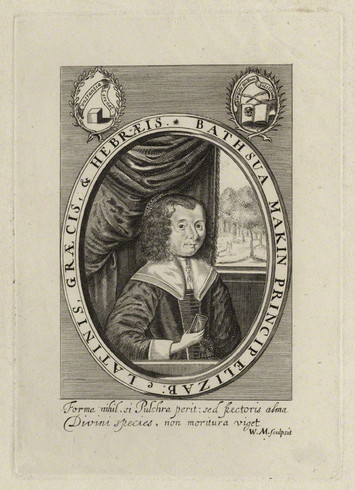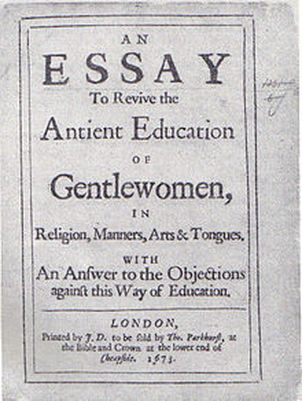|
An essay to revive the Ancien Education ...
An Essay To Revive the Ancient Education of Gentlewomen, in Religion, Manners, Arts & Tongues. With An Answer to the Objections against this Way of Education. 1673
To all Ingenious and Vertuous Ladies ... Custom, when it is inveterate, hath a mighty influence: it hath the force of Nature it self. The Barbarous custom to breed Women low, is grown general amongst us, and hath prevailed so far, that it is verily believed (especially amongst a sort of debauched Sots) that Women are not endued with such Reason, as Men; nor capable of improvement by Education, as they are. It is lookt upon as a monstrous thing; to pretend the contrary. A Learned Woman is thought to be a Comet, that bodes Mischief, when ever it appears. To offer to the World the liberal Education of Women is to deface the Image of God in Man, it will make Women so high, and men so low, like Fire in the House-top, it will set the whole world in a Flame... |
|
Sources:
Vivian Salmon, Language and Society in Early Modern England, John Benjamins Publishing, 1996
Bathsua Makin and the Education of Women
http://www.societyforthestudyofwomenphilosophers.org/Bathsua_Makin.html
Vivian Salmon, Language and Society in Early Modern England, John Benjamins Publishing, 1996
Bathsua Makin and the Education of Women
http://www.societyforthestudyofwomenphilosophers.org/Bathsua_Makin.html
Contact: [email protected]
|


